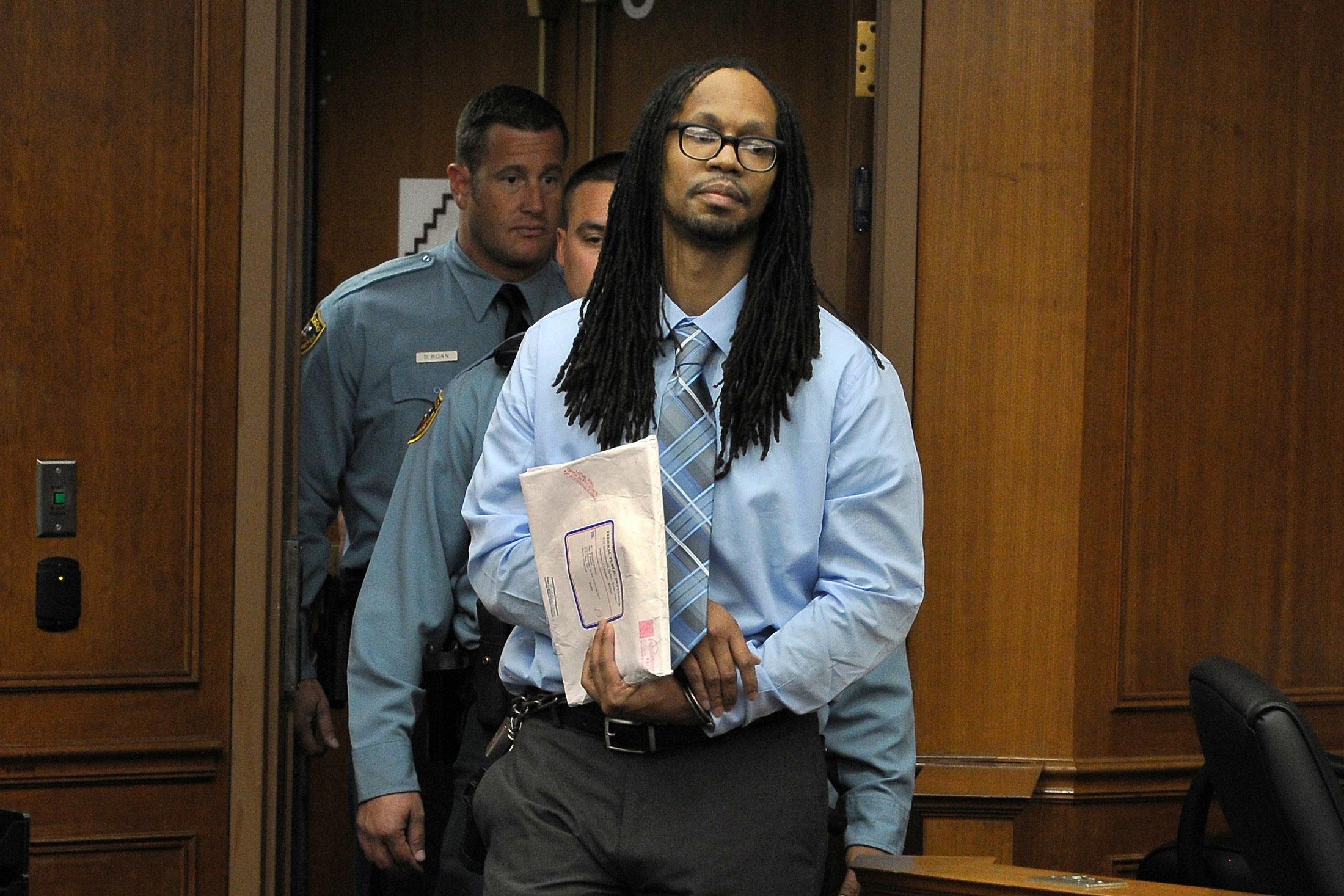
Everyone knew that Gov. Jared Polis would sign a bill to abolish the death penalty, making it law; he made no secret about his position on the issue. And when he finally did it on Monday, Polis settled another big question: The fate of the three men already on death row.
Colorado’s new law was not written retroactively; it doesn't change the death sentences of Sir Mario Owens, Robert Ray and Nathan Dunlap. Instead, Polis used his power as chief executive to commute all three men’s punishment to life in prison without the possibility of parole.
That decision resulted in a short delay before Polis signed the bill, according to House Speaker KC Becker. The governor was reaching out to families and others, she said, as he weighed what was sure to be a controversial decision.
In announcing the decision, Polis decried the three men as “despicable and guilty individuals.” However, he defended his clemency decision as “consistent with the recognition that the death penalty cannot be, and never has been, administered equitably in the State of Colorado.”
Later in his executive orders, Polis stressed that the commutations were not “a commentary on the moral or ethical implications of the death penalty in our society,” but instead a reflection of the new law.
Spared from death row
The men granted clemency were:
- Nathan Dunlap, who in 1993 murdered Sylvia Crowell, Ben Grant, Margaret Kohlberg, and Colleen O'Connor, while also severely injuring Bobby Stephens, in a shooting at a Chuck E. Cheese restaurant. He was sentenced to death in 1996 and scheduled to die in 2013, but former Gov. John Hickenlooper indefinitely delayed his execution. Dunlap is 45.
- Robert Ray, who ordered the 2005 murder of Javad Marshall Fields and his fiancee, Vivian Wolfe. Marshall Fields planned to testify against Ray for the earlier killing of Gregory Vann. Ray’s targeting of the witness was an aggravating factor in his death sentence. Marshall Fields' mother, Rhonda Fields, went into politics and is now a state senator. Ray’s case is still in appeals and his execution had not been scheduled. Ray is 34.
- Sir Mario Owens, who in 2005 carried out the murder of Marshall Fields and Wolfe on the orders of Robert Ray. Owens also shot Vann to death in the earlier 2004 killing. Owens’ case is still in appeals and his execution had not been scheduled. Owens is 35.
The governor did not refer to the men by name, instead calling them only by their inmate identification numbers in his executive orders. Each will now be imprisoned for life.
All three men are black and attended the same Aurora high school. Reformers have generally not argued that they are innocent, though they have challenged prosecutors' work.
Instead, death penalty opponents have argued that the death penalty is fundamentally unfair because Colorado juries have not applied the death penalty in countless other horrific crimes. Colorado’s last execution was of Gary Lee Davis, a white man, in 1997.
The state still has one pending capital case in the killing of sheriff’s deputy Heath Gumm. The jury can still choose death, in spite of the new law, which would give Polis with one more decision to make.
Criticism comes fast
Sen. Fields said on Monday that the governor had "wiped away" the decision of the jurors in the cases of her son's killers.
"This is a sad day because justice was hijacked and our justice system was undermined," she said. “He’s made his decision, so I guess I have to live through that just like I had to live with the death of my son."
District Attorney George Brauchler, a strong supporter of the death penalty, also criticized Polis for the decision.
Brauchler is the elected lead prosecutor in the district where Ray and Owens were tried. His predecessor, Carol Chambers, led the death-penalty cases against the two men.
Brauchler argued that Polis could have waited to commute the sentences, at least until the COVID-19 pandemic had passed. While the governor was on a deadline to sign the death penalty bill itself, none of the men were scheduled for execution.
“The decision to do it during a global pandemic is disrespectful to the victims, the jurors and the public. It is not leadership, but weakness and political opportunism,” said Brauchler, a former gubernatorial candidate.
Brauchler also said that he should have been consulted earlier, arguing that Polis wasn't "complying with the law."
The statute Brauchler cited requires the governor to try to get input from the presiding judge and the prosecuting attorney in a case before considering a clemency application. But it wasn’t immediately clear whether that applied to the process Polis used. The governor has very broad authority to grant clemency when he deems it appropriate.
“The governor has this authority and it is cited in the executive order,” said spokesperson Conor Cahill.
Polis’ team didn’t immediately respond to a request for further comment. In his written statement, the governor said he had "done a thorough outreach process" with victims and their family members.
“While I understand that some victims agree with my decision and others disagree, I hope this decision provides clarity and certainty for them moving forward,” Polis said in his announcement.
Different states, different decisions
Governors in other states have taken different approaches. Some, like Polis, have commuted sentences. Martin O’Malley of Maryland waited nearly two years to make the decision, doing it just before his term concluded. In New Mexico, there was no gubernatorial clemency, but the state’s supreme court overturned two men’s death penalties about a decade after the death penalty’s repeal.
“Over the years, what we’ve seen are that people on death row have tended to come off of death row” after abolition, said Robert Dunham, executive director of the Death Penalty Information Center, a national nonprofit that tracks the issue.









